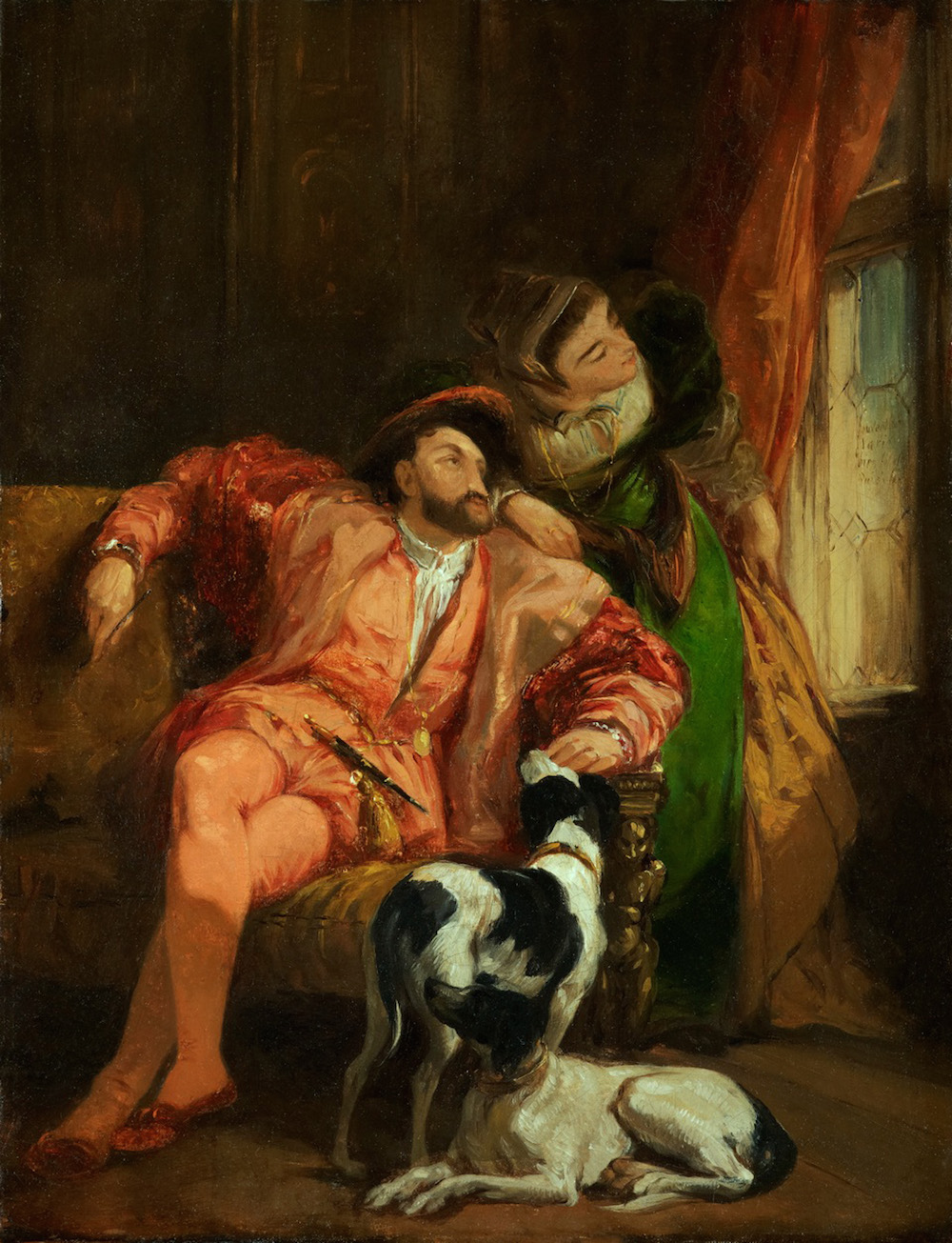Francois I et la Reine de Navarre
Richard Parkes Bonington

Details
- Artist
- Richard Parkes Bonington
- Title
- Francois I et la Reine de Navarre
- Medium
- oil on canvas
- Size
- 35.5 x 27.5 cm
- Details
This work was included in the Collectors Exhibition 2016 and is no longer on consignment with Lauraine Diggins Fine Art. For any enquiries, please contact the Gallery.
Provenance
possibly John Proctor Anderdon 1760-1846, Fairley Hall
possibly Thomas Woolner 1825-1892
Christie’s, 12 June 1875, lot 129, bt Ellis
Thomas McLean, London
private collection, London
Exhibited
Paris Salon, 1827-28, second instalment, no. 1604
Literature
Jal, A., Esquisses, croquis, pochades où tout ce qu'on voudra sur le salon de 1827, Paris, Ambroise Dupont, 1828, p. 498
Illustrations of the Keepsake, The Literary Gazette, 21 October 1829, p. 667
Gautier, Théophile, Les Beaux-Arts en Europe, Paris, 1856 II: 47
Mantz, Paul, Gazette des Beaux Arts 1876, II. 299
Ingamells, John, Richard Parkes Bonnington, Wallace Collection Monographs, London, 1979, p. 74
Ingamells, John, The Wallace Collection: Catalogue of Pictures, Wallace Collection, London, 1985, pp. 24-6
Pointon, Marcia, Bonington, Francia and Wyld, Batsford Books in association with the Victoria and Albert Museum, 1986, passim
Noon, Patrick, Richard Parkes Bonington - the complete works, Yale University Press, 2009, no. 409, pp. 444-445
Engraved:
- Engraving, by Charles Heath, for Mary Shelley’s ‘The False Rhyme,’ The Keepsake (London, 1829)
- Engraving, by Normand for T. Hamilton, The English School, a series of the most approved productions in Painting and Sculpture (London, 1832) IV:225
- Aquatint, by Jazet, 1829
- Lithograph, by A. Devéria, 1833
- Lithograph, by A. Bouchet, 1836, probably a copy after no. 3
Further Information
Painted in 1828, aged only 26 and with a bare seven months to live, this painting shows Bonington for the master he was. Depicting Francois I with his sister at the Chateau de Chambord, the scene from a distant past is imbued with a dynamism and sense of human vitality and highlights his mastery of rich colour and texture.
To view the full catalogue essay please click here.
